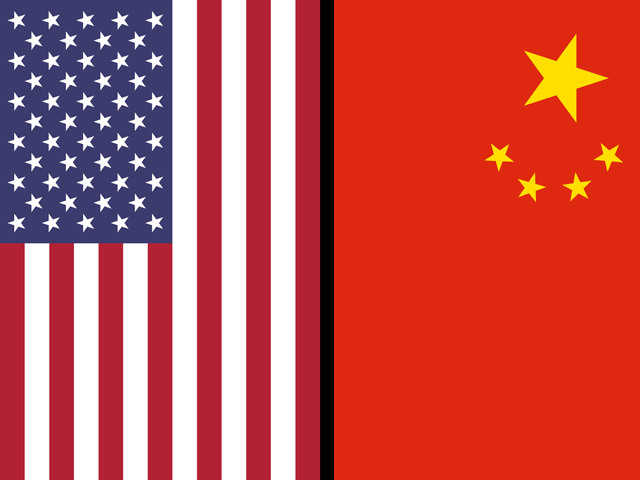An Urban's Rural View
The Big Question in US-China Relations
The Chinese are buying American soybeans, and even if their ag imports haven't reached Phase One levels, they are driving soybean prices higher. So far, so good. The question is, will they continue to buy in the years ahead?
The answer will depend, in part, on the overall state of U.S.-China relations. In a previous post I wrung my hands about a possible event that could make today's bad bilateral relations a lot worse -- a Chinese invasion of Taiwan. (https://www.dtnpf.com/…)
Since then, a noted foreign-policy expert has voiced similar fears. Citing China's increasingly aggressive behavior, Richard Haass, president of the Council on Foreign Relations, warned in an article in Foreign Affairs that "China's aim to gain control of Taiwan, through force if necessary, needs to be taken seriously." (https://www.foreignaffairs.com/…)
To counter that, Haass and co-author David Sacks propose a measure that some will deem radical. They advocate undoing a Taiwan policy that administrations of both parties have followed for 41 years. Under this policy, consistent with the Taiwan Relations Act of 1979 and dubbed "strategic ambiguity," the U.S. refuses to say whether it would come to Taiwan's defense in the event of an attack from China. As a U.S. State Department official once put it to a group of Chinese officials, "We don't know, and you don't know." (https://www.cato.org/…)
In other words, if the Chinese try to forcibly "reunify" with Taiwan, they might end up at war with America -- or they might not. For four decades, this wasn't a chance they were willing to take. The U.S. was too strong militarily and China was too focused on building a robust economy. Strategic ambiguity deterred China and kept the peace.
Deterring today's much stronger and more belligerent China requires a switch to strategic clarity, Haass and Sacks maintain. The U.S. must state clearly that it WILL defend Taiwan. Faced with the certainty that attacking Taiwan means war with America, China will restrain itself.
P[L1] D[0x0] M[300x250] OOP[F] ADUNIT[] T[]
"The best way to ensure that the United States does not need to come to Taiwan's defense," they wrote, "is to signal to China that it is prepared to do so."
Could this signal be sent without igniting a crisis in U.S.-China relations? The authors think so. The U.S. would reiterate its belief that there is only one China; as long as reunification took place peacefully, Washington would have no objections. The U.S. would continue to make clear that it doesn't support Taiwan independence. It wouldn't diplomatically recognize, or sign any documents with, Taiwan.
The only change, then, would be a clear statement that the U.S. will not tolerate an attack on Taiwan. Such a statement, backed by steps to make it credible, will make Premier Xi Jinping "think twice before forcing the Taiwan issue and bringing about a confrontation with the United States."
Haass and Sacks make a good case for strategic clarity, but do they have convincing answers for the obvious questions? One is whether any strategy, clear or ambiguous, can deter China at this point. The U.S. has a much more powerful military, but China's is built for a Taiwan invasion. It's also focused on blowing American defenses of the island out of the water. And China is only 100 miles from Taiwan.
As the authors acknowledge, it's far from clear the U.S. could repel a Chinese invasion. Brookings Institution analyst Michael O'Hanlon is more specific: "Were China to use a partial blockade, cyberattacks, and some menacing missile strikes against Taiwan in an attempt to coerce it into capitulation and forced reunification, for example, it is not clear to me that the United States could confidently defeat that PLA [People's Liberation Army] strategy. Geography works heavily to China's advantage in such a scenario." (https://www.brookings.edu/…)
The U.S. would have to build up its military presence in the Western Pacific to make deterrence more credible, Haass and Sacks say. Congress would have to pass a law threatening very severe economic sanctions if China invades Taiwan.
Even assuming the U.S. did these things, the Chinese might reckon they could prevail. If they acted on that reckoning, the U.S. would have little choice. Strategic clarity would essentially force the U.S. to go to war with China.
And that raises another question: Is the U.S. really prepared to fight in defense of Taiwan? It would not be a pretty war, and civilians could be among the casualties. It's easy to imagine an escalation in which the two sides fired missiles at each other's communications satellites and hacked into each other's electricity grids.
It would not be a popular war with the American public. In a 2019 poll by the Chicago Council of Foreign Affairs, only 38% favored "the use of troops if China invades Taiwan."
What policymakers will have to weigh is this: Strategic clarity may decrease the likelihood that China invades Taiwan, but if deterrence fails it also increases the likelihood of war with China.
Even if the U.S. chose to let Taiwan go, the impact on economic relations with China would be catastrophic. War or no war, a Chinese attack on Taiwan would end U.S. agricultural exports to China. But war would take the catastrophe to a whole new level.
Haass and Sacks are prepared for that war. It's not clear the U.S. is.
Urban Lehner can be reached at urbanize@gmail.com
(c) Copyright 2020 DTN, LLC. All rights reserved.




